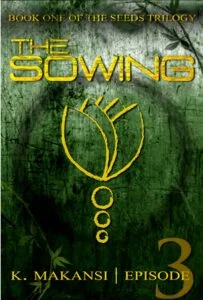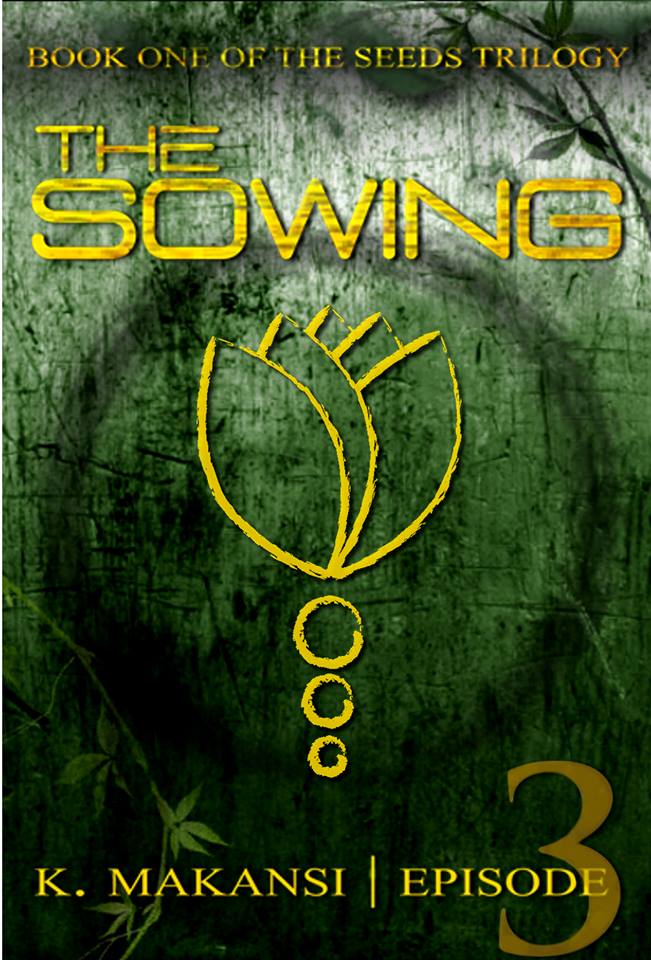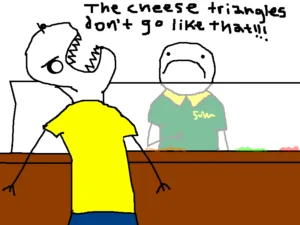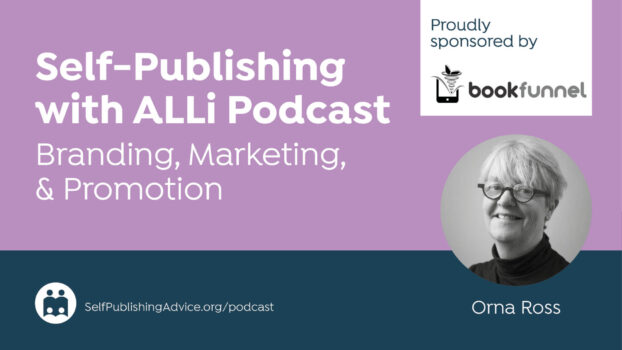Over the last year and a half, a mother and two daughters have written a novel together, collaboratively, in an almost entirely egalitarian fashion. “Somehow all three of us are still alive,” says Amira Makansi, one of the three writers who makes up K. Makanski. We invited her over to tell us how this three-in-one author-publishing team makes it work.
Many curious — and skeptical — friends and acquaintances have asked us how, or why, we chose to collaborate on writing a long work of fiction. “Isn’t it a lot more work?” they demand.
“How did you write it … together?” they ask with narrowed eyes.
The most common question, of course, is: “But … why?”
When my mother, Kristy, first had the dream involving a young man stretching his hand out to a fallen girl, young lovers separated by tragic consequences, she knew in her heart that the lovers’ story desperately needed telling. Excited, she shared it with my sister Elena (at the time, I was away in college) and the two of them hashed out a background and a general plot outline.
Then they shelved it. Almost two years later my mother had another dream; this time I was around for the telling, and we set about crafting the first two chapters.
Somehow the words seemed to write themselves; the story seemed to come to life without our help.
 Then Elena, now in college herself, once again got interested.
Then Elena, now in college herself, once again got interested.
The story is told in dual first-person present tense, and so I wrote Vale’s perspective, who is our male protagonist, and Kristy and Elena alternated writing Remy’s point of view. We always had the next few chapters outlined, but beyond that, we were in the dark.
Our characters kept us on our toes and we bounced ideas back and forth at each other constantly via text messaging and email. Writing this way, we got through a full first draft.
Of Edits and Egos.
The great advantage of writing collaboratively is that you always have at least one built-in editor to provide positive reinforcement—and to keep your ego in check. We all turned to each other in times of need. When I couldn’t get inside Vale’s emotional state in a particular scene, I asked Elena for help. She suggested a writing exercise that put me back on the right track.
And when I wrote scenes that I thought were awesome (spoiler: they weren’t!) Kristy and Elena were waiting to gently bring me back down to earth.
In order to homogenize the voices, though, we needed a consistent style. Fortunately, I suddenly found myself with a lot of free time just when we got comments back from beta readers. I promptly took it upon myself to go over the entire book a second time, incorporating comments and our own changes, often writing entirely new chapters to accommodate our new vision for the story.
Lest anyone think, however, that this means I have been the “dominant” author on the project, no. There were still many rounds of editing yet to come, and Kristy and Elena played as active a role in these rewrites and edits as I did.
As with all things, the devil’s in the detail, in this case: word choice, minor paragraphs, tweaking characterisations and miniscule plot changes. While the plot arc and character development seemed to flow almost without our control, the molehills in the story quickly turned into mountains as we edit Writing As A Team: Collaborative Fiction Writing together—sometimes all three of us looking at a single computer screen.
Tensions rose; we argued passionately and sometimes hot-headedly over the pieces of the story we cared about. Because, as we constantly reminded each other, everything had to be perfect.
But editing is a frustrating process no matter whose puppies you’re killing, and overall, the writing experience has been incredibly satisfying.
Honestly, it makes me a little afraid to venture out into the waters alone, and writing an entire book by myself, without those built-in editors at my side, feels far more daunting than arguing over word choice and map locations.
So now, when people ask me, “But why would you choose to write a book together?” I simply ask in response: “Why not?”
Amira Makansi is one of three writers on the K. Makansi writing team. Along with her mother, Kristy, and her younger sister, Elena, K. Makansi is in the process of serially releasing their debut young adult science fiction novel, The Sowing, set in a post-apocalyptic world, which is based on the dream mentioned above and is the first in a planned trilogy. You can visit the website for the trilogy or check out Amira’s personal blog, where she writes book reviews and posts about self-publishing and the travails of being a young writer.







[…] books, they write books together. It’s called collaborative writing, and according to ALLi, this can sometimes get tense, especially when editing and working on having a consistent tone. But […]
Very interesting. Homogenization of styles is the part that scares me. On the other hand, I imagine sharing the creative process has to be rewarding. I have a guest post on my blog about collaborating that I think you might like: http://adamsapple2day.blogspot.com/2015/03/writing-tip-tuesdays-what-to-expect.html
Thanks!
[…] books, they write books together. It’s called collaborative writing, and according to ALLi, this can sometimes get tense, especially when editing and working on having a consistent tone. But […]
[…] books, they write books together. It’s called collaborative writing, and according to ALLi, this can sometimes get tense, especially when editing and working on having a consistent tone. But […]
Hello to you all. i’m looking for an amateur writer that is willing to collaborate with me in writing a novel…Those interested contact me at [email protected]
Can someone give me advice on putting together a writing team? I have had an idea for fiction for over 20 years. The story is loosely based on Lucifer before he became Satan and the story of how he went from the most beloved angel into the what we call Satan or the devil.
I however am not a writer. I got straight c’s in school for writing and I just cannot get the story out of my head. I was thinking of putting together a team of people to help write the story but I am not sure if that is frowned on in the writing world and how receptive this idea would be to potential writers.
I think that writing as a team would really be beneficial and might help to bring to life this story. Does anyone have any ideas on putting together a writing team and how to manage something like this?
[…] not sure how useful this one is, but I did enjoy Amira Makansi’s post at ALLI on “Writing As A Team: Collaborative Fiction Writing“. It does have some interesting points to make which may appeal to a writer who is […]
[…] 3 weeks ago by ALLi Editorial 10 […]
Hi Amira,
As a co-author of a post-apocalyptic series, I am all too familiar with the pluses and deltas of collaborating on a project. I have to say that you hit it right on the mark. It’s like there’s a bitter sweetness about partnership, especially when we’re talking about creativity. For example, it’s fun and helpful bouncing ideas off one another, asking for character plot and arc feedback, and getting an honest opinion from someone who stands to “lose” as much as you. But there’s also a very complicated facet that I think somewhat hinders personal creativity. A partnership is just that…we rely on one another and have to meet in the middle if we’re going to make our projects as amazing as we envision it to be. Give and take isn’t always easy, at least not for me because I like my ideas (ha ha ha). The reason I’m going on about this to you is because this post is the first I’ve ever read that directly relates to my writing experience. It’s nice to know the flitting and tumbling thoughts in my mind aren’t unwarranted and that we’re not alone in this. Thanks for the great post!
Hi Lindsey! Thanks so much for writing in. I agree 100% that it’s very helpful to have people to bounce ideas off of, to brainstorm with, and to get honest opinions from. But sometimes I just want to use MY ideas, MY words, MY stories! And it’s times like that when I look forward eagerly to starting my own books and writing as a stand-alone author 🙂 Thanks for you support, and I’d love to hear more about your project!
Fascinating post. My husband and I are collaborating on a manuscript, and I definitely agree about having that built in editor there to point out things that simply don’t make sense. 🙂
I can understand how characters write their own stories. In my own novel, ‘Deadly Justice’ (Kindle), I wrote about four really nasty men. After writing about one of the men in particular I found that I was actually feeling sorry for him. I had to stop writing for about a week and then rewrite this mans story into the theme I wanted. It was almost like these men were actually real.
That’s amazing that you feel that way! I totally felt that way about a lot of the characters in our book. They took control of the storyline in a way I could never have predicted. It’s so interesting when your characters demand that you take them somewhere else.
Thanks for being so open about your own plural writing process, Team Makansi!
Have you read Q? By ‘Luther Blissett’. Which is really 4 Italian authors – now writing as Wu Ming (chinese for ‘no name’). I’ve just got it (not through my letter box – its fat, fat, fat) cos I was interested to see collaborative writing in action – especially joint writing which is as famous as this (across Europe – I felt ashamed that I’d never heard of it before). It’s ostensibly about the sixteenth century – but … is it a much more modern allegory? is it an ‘anti-novel’? is it a ‘handbook of survival skills’ (which is what the authors apparently say)? Whatever, it’s immensely well-written (even in translation) and a great adventure story.
Roll on more collaborative writing if it’s like Q and your own book!
Hey, awesome! Thanks for the recommendation! This ‘Luther Blissett’ must have been really devoted to work collaboratively with FOUR authors – that’s amazing. I’ll have to add ‘Q’ to my amazon wish list and read it asap. Thanks so much for sharing!
As one of the members of the collaborative writing team in question (the eldest of the K. Makansi team), I’d like to add that the process has been one of the joys of my life. And it’s been a tremendous amount of fun. We’re in the midst of writing book two in The Seeds Trilogy, The Reaping, and I’m looking forward to sharing the excitement about our characters and their challenges, difficult choices, and romantic entanglements; engaging in more heated discussions about plot points; and trying to hold my own in more knock-down-drag-out arguments over choosing the exact right word.
[…] – See more at:Â https://selfpublishingadvice.org/writing-as-a-team-collaborative-fiction-writing/ […]
Warren,
Thanks for commenting. I agree that in many cases ‘two minds are better than one’ and it certainly applied in this case! As for the ‘mutual respect’ part, even when one of us occasionally lost sight of that (usually me) we had enough determination and passion for the story to bring us back into our shared goal.
Thanks for commenting!
Wonderful article on collaborative writing. At the risk of some eye-rolling, I’ll just mention that “Two minds (may be) better than one.” The baseline is in the ability to enjoy a Unified Vision of the story and a mutual goal where neither writer forces their personal opinions. It’s called “Mutual Respect” wthout this vilal component, there cannot be a relationship of any kind… Period.
Please view my website: http://www.washuman.com. Appreciate your feedback.